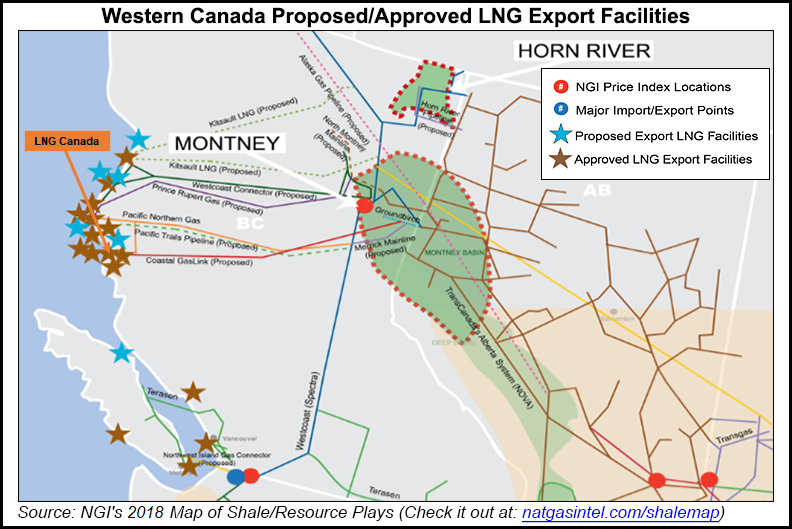Regulatory | Infrastructure | LNG | LNG Insight | NGI All News Access
Coastal GasLink Clears Another Hurdle in Court Victory
A native claim obstacle has been removed by a court verdict, clearing the way for more construction on the Coastal GasLink pipeline, which would supply a liquefied natural gas export project under development on the northern Pacific coast of British Columbia (BC).

The BC Supreme Court granted a permanent injunction against interference with the project by dissenters from cooperation and benefits agreements made with TC Energy Corp. by elected heads of all 20 tribes along the 670-kilometer (400-mile) pipeline route.
The dissenters describe themselves as hereditary clans and leaders with rights to stop industrial intrusion into claimed traditional native territory, as opposed to elected chiefs and councils created under Canada’s 19th century Indian Act.
Last January, police enforcement of a temporary injunction, which dismantled dissenter protest structures, led to a flurry of arrests on a remote stretch of the northern pipeline route and inspired small sympathy rallies across the country.
The new ruling said Canada has neither accepted the dissenter claims to native “reoccupation” of northern BC nor recognized any special rights to obstruct lawfully approved activity.
TC Energy pledged to continue cooperating with the tribes along the pipeline route. The native dissenters fired off a statement saying the court verdict “proves that industry, not the people, can control the province and its laws.”
The ruling against native dissenter interference follows an agreement by KKR and Alberta Investment Management Corp. to buy and evenly split a 65% share in the C$6.6 billion ($5 billion) Coastal GasLink.
TC Energy will continue to build and operate the project but does not control access to the pipeline. All capacity, initially 2.1 Bcf/d and capable of expansion to 5 Bcf/d, is dedicated to LNG Canada partners Royal Dutch Shell plc, Petronas, PetroChina Corp., Mitsubishi Corp. and Korea Gas Corp.
© 2024 Natural Gas Intelligence. All rights reserved.
ISSN © 1532-1231 | ISSN © 2577-9877 |
